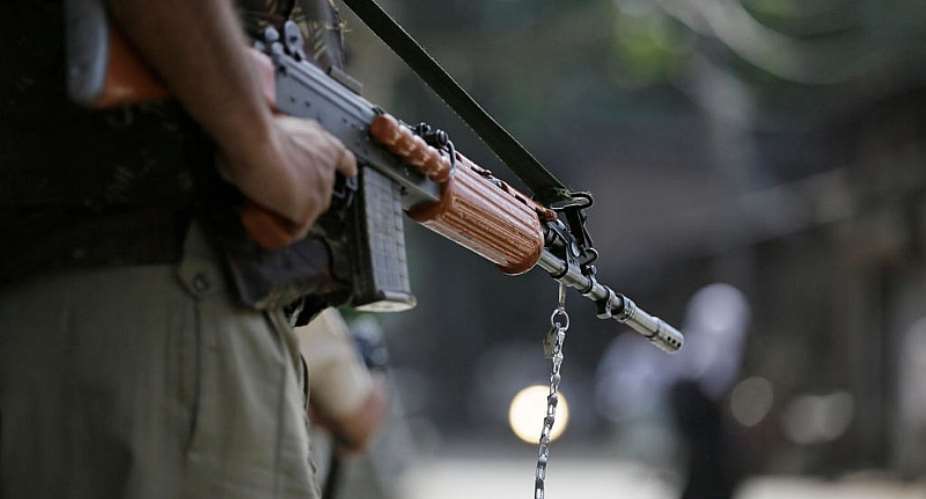The Indian Navy vessel Shardul recently ferried oxygen from the Middle East instead of the military tanks it is designed to carry. The 4,259 nautical mile voyage scripted another golden verse in the Indian military's odyssey of saving millions of lives in struggling Covid hospitals.
The vessel entered Indian waters just days before France offered a second batch of oxygen generators as part of its “largest solidarity operation”.
Paris also promised oxygen concentrators and ventilators for hospitals strained by an explosive second Covid wave which killed 170,000 between April and May this year.
General Vipin Rawat, India's Chief of Defence Staff, said military transport planes were deployed to save additional time.
“We were able to utilise the air force to move things from abroad in a faster timeframe than the sea route,” the general told a TV station.
Military flights, which started on 16 April, shuttled back and forth for oxygen refills in a joint exercise with the navy.
As of 27 May, the air force clocked 166 international sorties logging 820 flying hours carting supplies from Thailand, Britain, Germany, Belgium, Australia, Indonesia and Israel.
“People were dying … So we threw in everything,” added a military pilot, referring to the oxygen shortages during the devastating surge which added 11 million Covid-19 cases to India's current official tally of 28.5 million infections.
Pictures of bodies cremated at a parking lot in Delhi, patients dying without oxygen in hospitals, and crematoriums working non-stop also galvanised efforts to put an end to the catastrophe before a projected third wave.
Indian Prime Minister Narendra Modi this week praised the air force and navy for the supplies that somewhat blunted the impact of the brutal second wave.
The maritime mercy mission
The navy also deployed its prized warships to ferry oxygen containers from countries in the Middle East and Southeast Asia after evacuating 4,000 stranded citizens from neighbouring countries.
“This is an unprecedented situation for us,” Indian naval chief, Admiral Kadambir Singh, said in a message as he ordered all hands to battle stations.
“We will collectively rise as 'team navy'… and do our best for the nation, for the navy and our communities,” the admiral said.
Army puts more boots on the ground
India's million-plus army recalled its doctors and medical personnel from frontline posts to man Covid hospitals and offered an extension to those scheduled to retire from service.
The army had already installed 13 quarantine facilities, ramped up 113 hospitals, and added 9,000 Covid critical care beds during the pandemic's first wave last year.
Army lieutenant general Madhuri Kantikar, a paediatrician, summed up the exercise in a sentence.
“Being a woman and a mother, you have eyes at the back to get out of the box ideas and it does help you," the three-star general, leading the army's massive medical operation, told media.
Even military scientists chipped in with a drug to heal Covid patients they successfully launched a month after rolling out a mobile testing laboratory in April.
General's lingering doubts
But H.S. Panag, a retired lieutenant general, argued the government appeared reluctant to fully utilise the military to combat the pandemic.
“First, the government seems apprehensive about its incompetency getting exposed,” Panag said in an article he published on 6 May.
“Second, the military hierarchy has itself failed to advise the government about its capabilities and core competencies, and on how best to utilise the resources of the armed forces,” the commander alleged.





 Supreme court declares payment of wages to spouses of President, Vice President ...
Supreme court declares payment of wages to spouses of President, Vice President ...
 Publish full KPMG report on SML-GRA contract – Bright Simons to Akufo-Addo
Publish full KPMG report on SML-GRA contract – Bright Simons to Akufo-Addo
 Kumasi International Airport to begin full operations by end of June
Kumasi International Airport to begin full operations by end of June
 Election 2024: Our ‘real challenge’ is getting ‘un-bothered’ youth to vote – Abu...
Election 2024: Our ‘real challenge’ is getting ‘un-bothered’ youth to vote – Abu...
 [Full text] Findings and recommendations by KPMG on SML-GRA contract
[Full text] Findings and recommendations by KPMG on SML-GRA contract
 Renegotiate SML contract – Akufo-Addo to GRA, Finance Ministry
Renegotiate SML contract – Akufo-Addo to GRA, Finance Ministry
 J.B Danquah-Adu murder trial: Sexy Dondon to Subpoena Ken Agyapong, Ursula Owusu
J.B Danquah-Adu murder trial: Sexy Dondon to Subpoena Ken Agyapong, Ursula Owusu
 Galamsey: Five Burkinabes jailed 20 years each for mining
Galamsey: Five Burkinabes jailed 20 years each for mining
 'It's no crime' – Abu Sakara defends Alan's exit from NPP
'It's no crime' – Abu Sakara defends Alan's exit from NPP
 'We know all your houses, pay your bills now or we’ll disconnect you; we're all ...
'We know all your houses, pay your bills now or we’ll disconnect you; we're all ...
